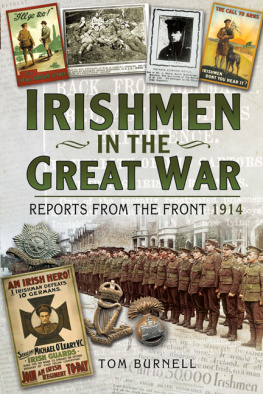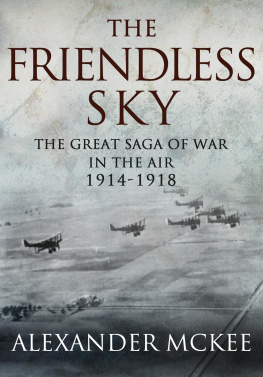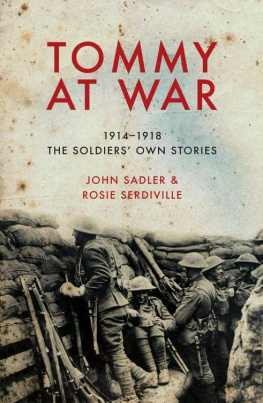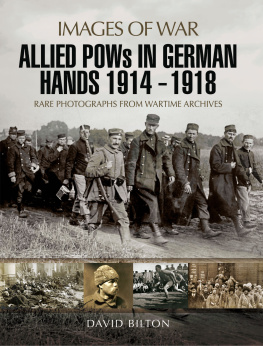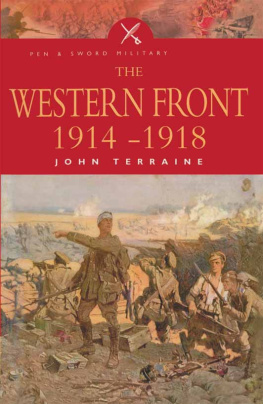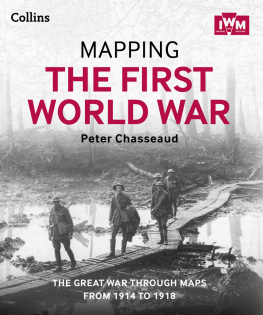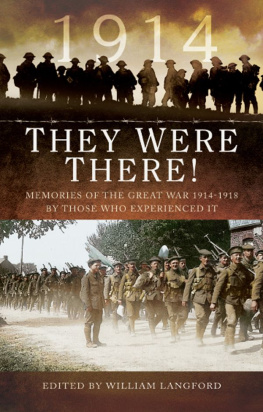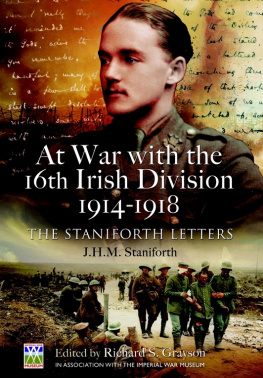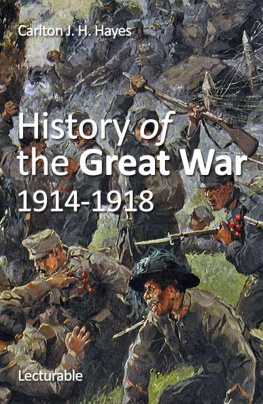Burnell - Irishmen in the Great War, 1914-1918: Irish newspaper stories
Here you can read online Burnell - Irishmen in the Great War, 1914-1918: Irish newspaper stories full text of the book (entire story) in english for free. Download pdf and epub, get meaning, cover and reviews about this ebook. City: Ireland, year: 2014, publisher: Pen & Sword Military, genre: Non-fiction. Description of the work, (preface) as well as reviews are available. Best literature library LitArk.com created for fans of good reading and offers a wide selection of genres:
Romance novel
Science fiction
Adventure
Detective
Science
History
Home and family
Prose
Art
Politics
Computer
Non-fiction
Religion
Business
Children
Humor
Choose a favorite category and find really read worthwhile books. Enjoy immersion in the world of imagination, feel the emotions of the characters or learn something new for yourself, make an fascinating discovery.
- Book:Irishmen in the Great War, 1914-1918: Irish newspaper stories
- Author:
- Publisher:Pen & Sword Military
- Genre:
- Year:2014
- City:Ireland
- Rating:5 / 5
- Favourites:Add to favourites
- Your mark:
- 100
- 1
- 2
- 3
- 4
- 5
Irishmen in the Great War, 1914-1918: Irish newspaper stories: summary, description and annotation
We offer to read an annotation, description, summary or preface (depends on what the author of the book "Irishmen in the Great War, 1914-1918: Irish newspaper stories" wrote himself). If you haven't found the necessary information about the book — write in the comments, we will try to find it.
Burnell: author's other books
Who wrote Irishmen in the Great War, 1914-1918: Irish newspaper stories? Find out the surname, the name of the author of the book and a list of all author's works by series.
Irishmen in the Great War, 1914-1918: Irish newspaper stories — read online for free the complete book (whole text) full work
Below is the text of the book, divided by pages. System saving the place of the last page read, allows you to conveniently read the book "Irishmen in the Great War, 1914-1918: Irish newspaper stories" online for free, without having to search again every time where you left off. Put a bookmark, and you can go to the page where you finished reading at any time.
Font size:
Interval:
Bookmark:


First published in Great Britain in 2014 by
PEN & SWORD MILITARY
an imprint of
Pen & Sword Books Ltd,
47 Church Street, Barnsley,
South Yorkshire.
S70 2AS
Copyright Tom Burnell 2014
ISBN 978 1 47382 120 0
eISBN 9781473838611
The right of Tom Burnell to be identified as Author of this Work has been asserted by him in accordance with the Copyright, Designs and Patents Act 1988.
A CIP catalogue record for this book is available from the British Library
All rights reserved. No part of this book may be reproduced or transmitted in any form or by any means, electronic or mechanical including photocopying, recording or by any information storage and retrieval system, without permission from the Publisher in writing.
Designed by Factionpress
Pen & Sword Books Ltd incorporates the imprints of
Pen & Sword Aviation, Pen & Sword Maritime,
Pen & Sword Military, Pen & Sword Select, Pen & Sword
Military Classics, Leo Cooper, Wharncliffe Local History
For a complete list of Pen & Sword titles please contact:
PEN & SWORD BOOKS LIMITED
47 Church Street, Barnsley, South Yorkshire, S70 2AS, England.
E-mail: enquiries@pen-and-sword.co.uk
Website: www.pen-and-sword.co.uk

W hat a sobering, saddening and enlightening thing it is, to read the breathless newspaper accounts of the early stages of a war that no-one, absolutely no-one, had the least idea would still be underway, but now ten times as savage, in four more years time. All the naivety of everyone the soldiers, the newspaper reporters and the readers would soon be lost, never to be recovered by European civilisation, even to this day. Yet even as they stand, at the dawn of the worst war that the world had the known, these stories of death and bereavement are deeply moving. But such loss as these pages relate was not the prelude to wisdom and cessation, but simply to more of the same, with a fearsome, gathering intensity, until finally much of the globe was caught up in the Holocaust.
Journalism does more than relate what the writer wants to convey, but also and usually, unintentionally but every bit as importantly the culture, myths and the expectations of both his subject and his audience. In the early despatches of the war, Irish soldiers are routinely referred to as devil-may-care, as the caricature that was established in Wellingtons armies continued into the imperial wars in India pace Kipling and had been reinforced during the Boer War, again reappeared. Caricature within groups is of course often self-replicating. Irish soldiers, especially of Catholic peasant stock, and certainly in the early period of the Great War, often tried to live up to the clich-expectations made of them. Indeed, twenty-five years on, Sam McAughtry, a Belfast Presbyterian, found the Irish broth-of-a-boy expectation of him after he joined the RAF quite a challenge (if an enjoyable one) to live up to.
Irish soldiers in these early reports repeatedly re-employed the vocabulary born of imperial soldiering, in which the enemy were usually not a match for the their fighting spirit. They cannot stand the bayonet, declared one voice from the Front, as if that were the decisive weapon of the war, rather than being a largely irrelevant inheritance that would have little use in the coming years, save against the already-helpless and surrendering. Another staples of war, the spy, makes his early appearance here. An Irish soldier reports that a Belgian baker was often seen behaving strangely. Only after the Irish had moved on did they hear that the baker was found to have been sending carrier-pigeon messages to the Germans, and was shot. Yet another unfortunate local was said to be in possession of important Belgian military documents, and duly met the same fate. How either man got his pigeons or his documents, we do not hear; and I suspect both stories are part of the Apocrypha of War.
Yet, we see in these pages some reincarnations, within the popular imagination, of the kind of technological fantasising that H.G. Wells had made the staple of his fiction before the war. We read of a new explosive, melinite, perfected by a Mr Turpin, which, when exploded above a flock of 400 sheep, left no survivors. And when tried upon German trenches, it killed all those in its path. An American Red Cross man is quoted as saying: I saw the German trenches as the French guns left them. They were filled with dead in such posture as the world has never seen since the destroying angel passed above the Philistine camp in that avenging night of Scripture. It was as though some blight from heaven had fallen upon them. They stood in line, rifles to shoulder, a silent company of ghosts in the grey light of dawn. I approached them. There was no horror in their faces, no anger of surprise even. Only over them was a film of fine, greyish powder. You would have said that they had travelled a long and dusty road. I have seen men before who had died from asphyxiation, but here was no sign of the agonising struggle for breath. It was as if a deep and sudden sleep had overtaken them only their eyes were open. They might have been there from all eternity thus, their rifles at rest. I felt that if I touched them they would crumble into dust. Never have I seen anything more terrible than these erect, silent figures in the chill dawn.
As fantastic quite literally was the Secret War Plan of the Early of Dundonald, which was expected, quite inexplicably, to bring the war to a hasty conclusion. The report declared its details to be well known, so much so that it gives none. A recent Italian experiment, we are similarly told, revealed that an electrical shock could kill all enemy soldiers over several square miles of battlefield. And a Mr Hudson Maxim, inventor of the silent rifle, had perfected a device for covering the enemys share of the battlefield with sulphuric acid gas, thus immobilising him. Never mind, firstly, that the gentleman was actually named Hiram Maxim, and secondly that he had not invented such a weapon; we now know that poison gas, based on hydrochloric rather than sulphuric acid, was just seven months away from making its abominable appearance.
Nothing quite matches the shock of the new. When a few weeks ago news came through that duels had been fought in the air between aeroplanes, everybody was surprised, declared one article. The actual fighting is done by the passenger. Is it any wonder, with so much that was unexpected bursting upon the world, that we here read of a group of boatmen on the Irish Sea beholding and following a sea-monster?
Amid all the deadly innocence and beguiling murderousness of the time, we can still hear the authentic voice of the Irish countryman, such as the lamentations of Private Smith of the Irish Guards.. There was a big herd of cattle on the farm, and it was as pretty a sight as one could see. During the night the Germans shelled the farmhouse and buildings, which caught fire. In the morning the soldiers went to the smouldering ruins, and in the cattle sheds they (stet) were horrified to discover that all the cattle numbering in all 140 had been burned to death. At some of the stalls it was clear that the animals had made desperate attempts to get their liberty.
Private Smith, as the author reveals in one of his many sterling, scholarly interpolations, was himself to die of wounds in 1916. By that time, of course, he was a veteran of the front. The first Irish soldier killed on active service in the war didnt even make that far: Private James Ryan, of Stoneyford, County Kilkenny, was killed by an apparently blacked-out train while on sentry duty, guarding the bridge to Fota 19 August, 1914.
Font size:
Interval:
Bookmark:
Similar books «Irishmen in the Great War, 1914-1918: Irish newspaper stories»
Look at similar books to Irishmen in the Great War, 1914-1918: Irish newspaper stories. We have selected literature similar in name and meaning in the hope of providing readers with more options to find new, interesting, not yet read works.
Discussion, reviews of the book Irishmen in the Great War, 1914-1918: Irish newspaper stories and just readers' own opinions. Leave your comments, write what you think about the work, its meaning or the main characters. Specify what exactly you liked and what you didn't like, and why you think so.

